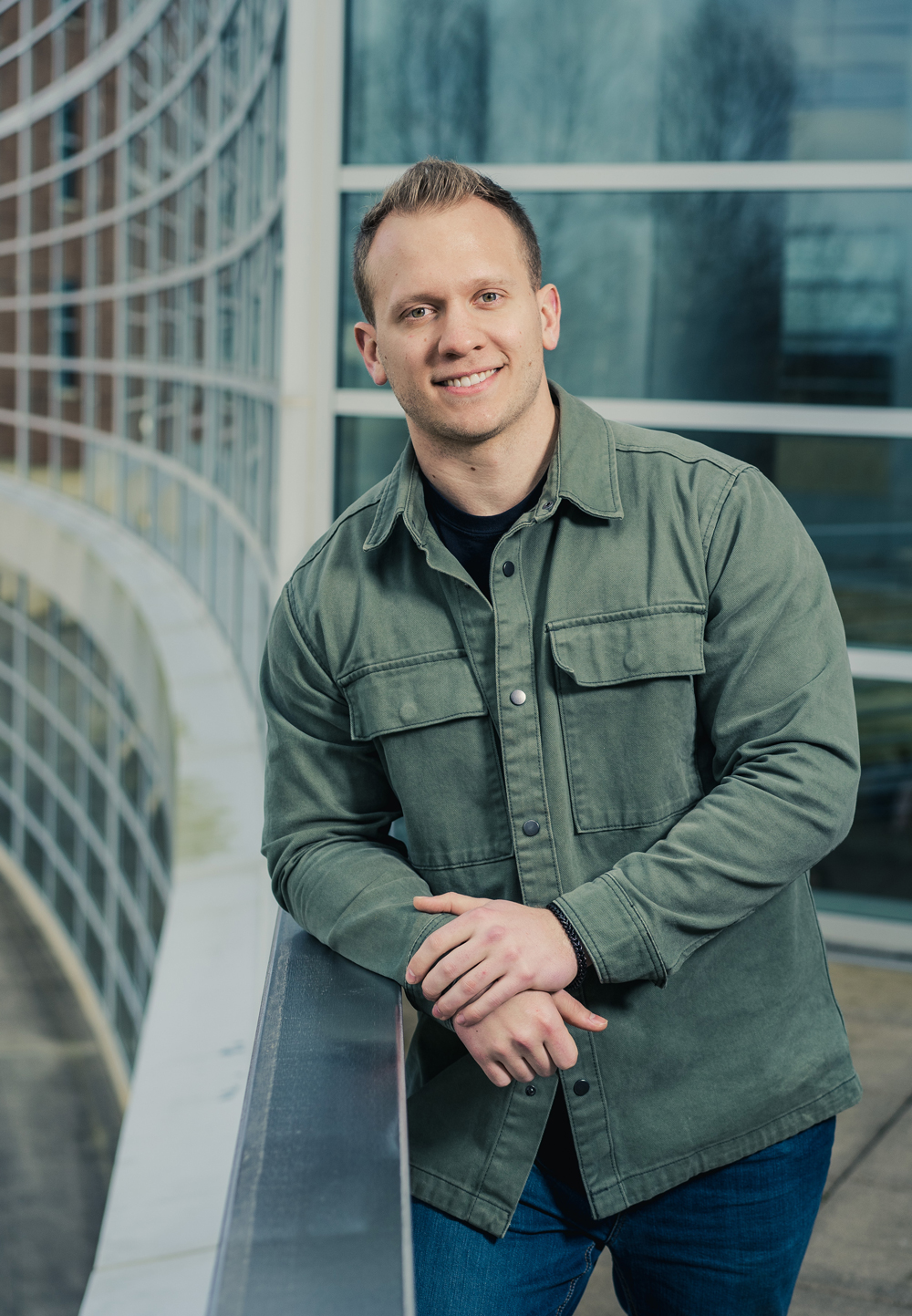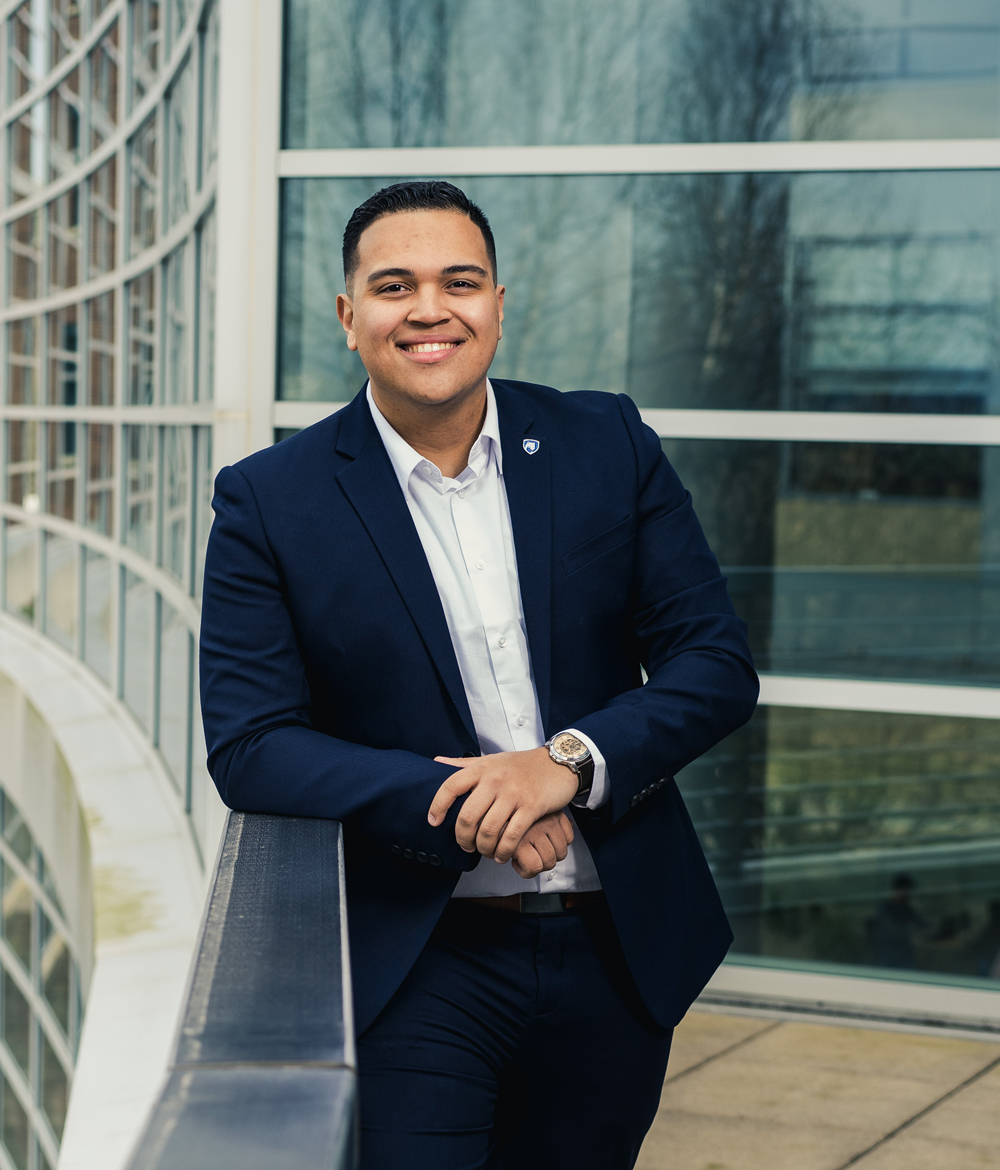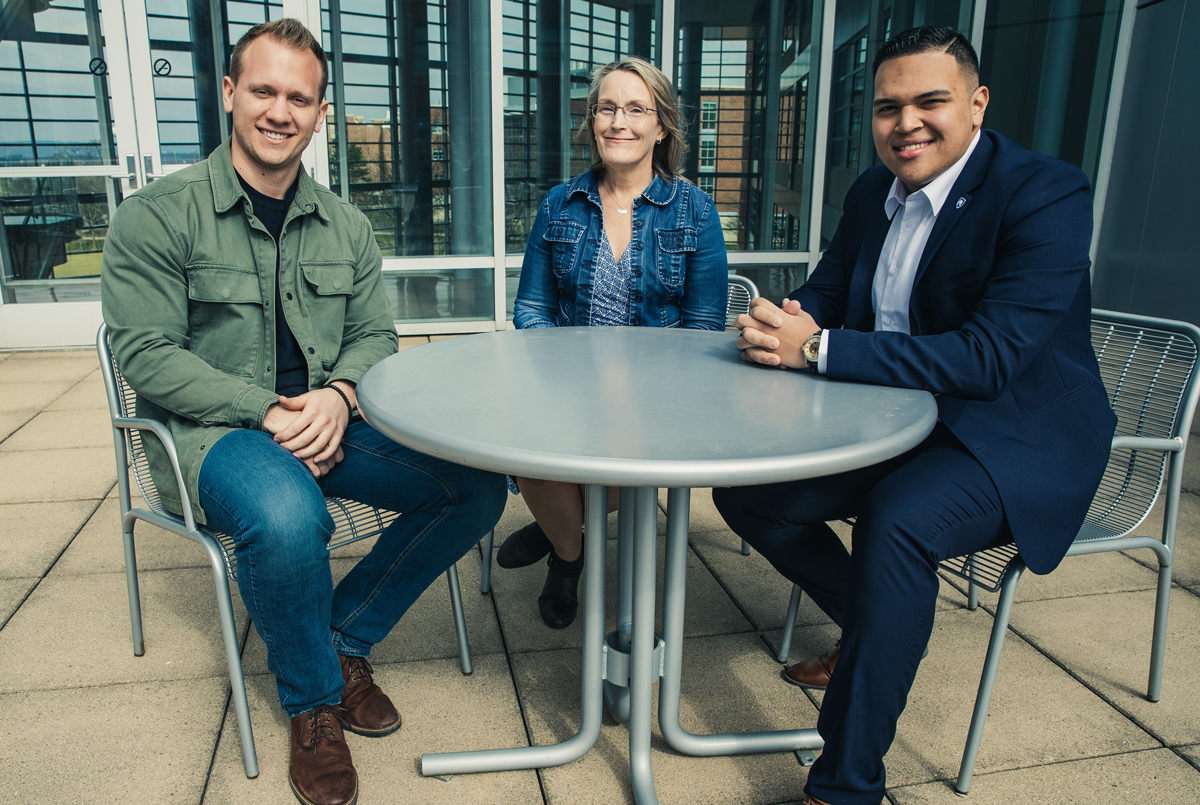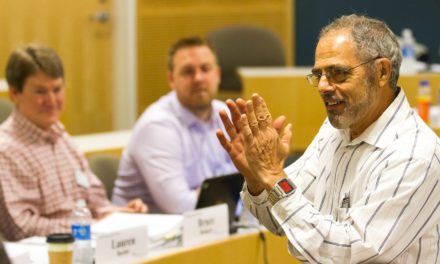Penn State 2+2 students find success at Smeal
It was a bittersweet moment the day Andrew Hoff found out he was accepted to the Penn State Smeal College of Business.
On one hand, the high school senior was overjoyed about being admitted into his dream business school, ranked as one of the best in the nation. On the other hand, the Thornton, Pennsylvania, native knew he wouldn’t be able to afford the cost of living at University Park for four years.
“My parents and I decided that the best financial decision would be for me to live at home and commute to my local campus, Penn State Brandywine, for two years and then transition to University Park to finish my degree,” Hoff says.
Four years later, Hoff recently graduated from Penn State Smeal with a degree in finance and minor in economics. His journey has been defined by the 2+2 program, which offers students the option of developing professionally and personally at a Penn State commonwealth campus before transitioning to University Park.
At the beginning of his collegiate career, Hoff wasn’t sure what to expect from the 112-acre Brandywine campus located just 20 miles outside of Philadelphia. But it didn’t take long for him to feel right at home there and become a star player on the varsity baseball team.
In 2021, during the fall of his junior year, Hoff transferred to University Park to finish his degree. The transition, he says, was initially a bit jarring.

Recent Penn State Smeal finance graduate Andrew Hoff knew he wouldn’t be able to afford to live at University Park for four years, so he started his college experience at Penn State Brandywine, located near his Thornton, Pennsylvania home.
“I have had the benefit of many people taking the time to help me navigate all that Smeal has to offer.”
For one, he had settled in nicely to the charm and intimacy of the Brandywine campus and was enjoying the perks of commuting from home. And then there was the size difference that caused apprehension — the roughly 1,200 friendly faces he was used to seeing at the commonwealth campus versus the nearly 46,000 students at University Park.
“Having met people in my classes and through clubs, I found people to be very welcoming and willing to help,” Hoff says. “I have had the benefit of many people taking the time to help me navigate all that Smeal has to offer.”
Hoff is part of a much larger population of students who arrive at Penn State Smeal with two years under their belt from different Penn State campuses. And while most students in the 2+2 Program might feel eager and excited to embark on the next chapter of their Penn State journey, many fear the change.
At Smeal, change-of-campus students are supported with myriad resources aimed at making them feel welcome from the moment they step foot in Happy Valley, from mentorship programs and student organizations to seminars and sessions instructed by faculty and advisors.
OPPORTUNITIES OPEN DOORS
By leveraging Smeal’s network of support, Hoff, who is also part of the Schreyer Honors College, was able to pursue his interests and sculpt his skillset as an emerging professional. During his first semester at University Park, he joined the Nittany Lion Consulting Group (NLCG), the university’s only faculty-supported, student-run consulting organization.
Throughout his time at NLCG, which serves Fortune 50 firms, international nonprofits, startups and other leading companies, Hoff has worked on real-world consulting engagements with a small nonprofit and was eventually elected engagement manager. The experience, he says, has helped him grow tremendously as a student, professional, and individual.
“The Nittany Lion Consulting Group taught me how to conduct myself as a professional and helped me find a full-time job in consulting,” says Hoff, who has joined Deloitte as a strategy consulting analyst in their Philadelphia office.
When he graduated Magna Cum Laude in May, Hoff boasted an impressive list of accolades that included the Debby Vinokur-Kaminsky and Howard Kaminsky Honors Scholarships, the Frederik and Sonja Wenzel Honors Scholarship, the Poole Family Honors Scholarship and the Nicholas Altobello Honors Scholarship. He was also a 2021 semi-finalist in the Business with Integrity Case Competition, where he and fellow students analyzed a contemporary business issue, as well as a speaker at the 2023 TEDxPSU showcase.
Hoff offers a word of advice to future students who transfer to University Park from another Penn State campus: Get involved with organizations that offer support, like Assistance in Transition to University Park (AT UP). As the current vice president for external affairs, Hoff has experienced firsthand how that and similar student organizations support the academic, professional, and social development of Smeal students transitioning to University Park through student mentorship.

Philadelphia native Adam Romero had no intention of transitioning from Penn State Abington to University Park. He changed his mind while serving as a virtual orientation student leader during the COVID-19 pandemic.
As part of Smeal’s Diversity Enhancement Programs, AT UP strives to bring together student leaders from every campus to better serve the needs of students that undergo a change in campus. These campus leaders are trained in a two-day COBALT (Conference on Bringing Accelerated Leaders Together) forum to learn skills they can then pass on to the junior 2+2 students they will be mentoring.
“Getting connected with the students in that organization can benefit a new change-of-campus student because they’ve been in their shoes,” says Dawn Maguire, an adviser for the organization. “Mentors can help answer questions, help them feel a little bit less alone, or guide them so they might not make as many of the mistakes or trip-ups that the mentor might have made.”
From Philadelphia to Happy Valley
Penn State Abington student Adam Romero had no intentions of transferring to University Park. A Philadelphia native, he had grown comfortable with the proximity to home, and the idea of packing up and heading to the middle of central Pennsylvania felt daunting. He was worried about the location of campus and its rural surroundings after living in the city his entire life and, of course, there was the matter of his finances — how he would be able to afford the increased tuition and cost of living.
After learning all about the University Park campus while serving as a virtual orientation student leader during the COVID-19 pandemic, Romero’s mindset changed — and he decided that was where he wanted to spend the remainder of his collegiate career.
His initial worries quickly faded upon his acceptance into the 2+2 program and arrival at University Park. With the help of his former supervisor and RA supervisor, Romero was able to secure scholarship funding from the University and the Hispanic Scholarship Fund. Then, in settling into life away from home, he realized his prior experiences serving as a resident assistant at Abington had been the perfect steppingstone to make the transition.
The management major also took advantage of the BA 297 (Career Planning and Strategies) course, taught by Professor Alexandra Stossel, which not only helped him transition to life as a new Smeal student but also in advancing his career with the instruction of resume writing, interview skills, and other business development topics. As an orientation leader, he also worked closely with the assistant director of transition programs to ensure a more flawless transition to University Park as a whole.
That smooth transition opened doors that defined Romero’s Smeal story. His extracurricular accolades — which include being a resident assistant, cohort member for the Latinx Leadership Institute, Task Force Member for the Smeal Ethical Leadership Challenge, and Executive Vice President of the Penn State Latino Caucus – have allowed him to drastically build and expand his network with faculty, staff, and alumni, while growing as a leader.
He summed it up simply: “Coming to Smeal was one of the best decisions of my life.”

Penn State 2+2 students Andrew Hoff (left) and Adam Romero (right) took advantage of Smeal’s Change of Campus Advising Ambassador Program, coordinated by adviser Dawn Maguire (center).
Warm welcomes and Smeal support
The resources Hoff and Romero leveraged during their change-of-campus experience only begin to describe the options that are available to students transitioning to University Park.
For the past 30 years, Smeal staff members have built and evolved a Change of Campus Advising Ambassador Program that has proved widely successful with 2+2 students. Every fall, ambassadors — who are academic advisers in the college — meet with change-of-campus students who are tracking Smeal majors and work with them to explain the college’s entrance-to-major process and establish a personal relationship for any questions or concerns the student may have.
“It helps make them feel a part of the Smeal community from the beginning and it gives them access to clubs and organizations at University Park that they otherwise wouldn’t be aware of or feel disconnected from,” says Maguire, who also serves as the change-of-campus coordinator.
Then there’s also the option for students to enroll in the BA 197 elective in which students are assigned to network with a Smeal alum, compete in the college-wide first-year seminar Honor and Integrity Competition, and participate in a seminar with the AT UP executive board and a leadership seminar with Penn State alumnae Sue Paterno and Mary Meder, president of Harmelin Media.
“It helps make them feel a part of the Smeal community from the beginning…”
Outside of the elective, other seminars are available for 2+2 and other Smeal students, like Advising 101 virtual sessions, which provides important information about courses and majors, and Explore Smeal virtual sessions, which allow participants to become more familiar with their college.
Maguire also chairs the Change of Campus College Outreach Committee and hosts a meeting each August where John and Karen Arnold Dean Charles Whiteman and Associate Dean Felisa Higgins officially welcome students into their majors.
“We want them to feel like they’re a part of the Smeal family from the beginning,” Maguire says.




